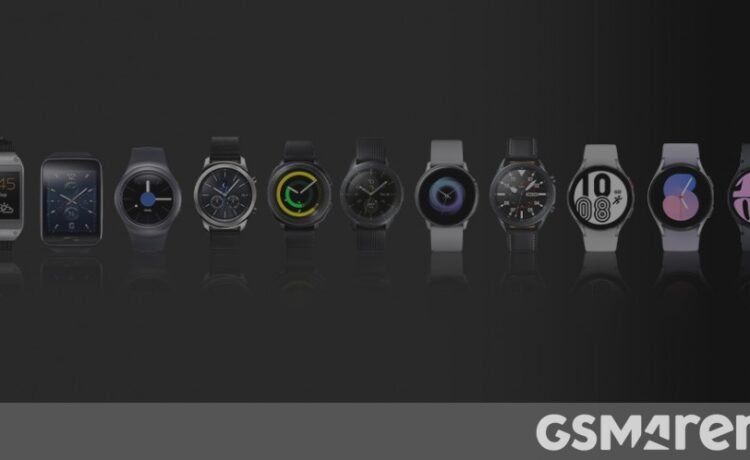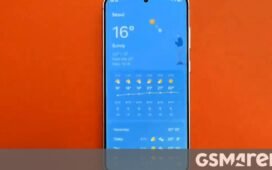Samsung is back with part 3 of its Galaxy history series and this time it is focusing on smartwatches. You can catch the previous entries which looked back on the history of the Fold and Buds series.

The journey began in 2013 with the Galaxy Gear – Samsung’s first foray into the smartwatch world. Smartwatches were still a fairly new product group back then with makers like Samsung still finding their footing in the space.
Apart from its iconic square design, featuring a 1.63-inch AMOLED display, this device also ran a custom fork of Android as its OS. It also had a 1.9MP camera which supported photo and video capture with the latter limited to 10-second duration and 720P resolution.
Moving on to 2014, Samsung launched Gear 2 in April with an improved 2MP camera, new watch straps, IP67 dust/water resistance and Samsung’s Tizen OS which would go on to power the next few generations of Galaxy Gear watches.
The Gear S launched later in October of that same year with improvements across both design and function. This was the first smartwatch with a curved Super AMOLED display for a more futuristic look. Samsung also added support for 3G cellular and Wi-Fi connectivity for a truly smartphone-independent wrist computer.
2015’s Galaxy Gear S2 took a turn to the more traditional round Galaxy Watch design that we know today. It bumped up to a IP68 dust/water resistance and added Qi wireless charging – something that we wished modern smartwatches would offer and introduced the rotating watch bezel.
The Gear S3 arrived in 2016 and brought Always On Display (AoD) functionality as well as built-in speakers and microphone for calls and an on-board GPS receive to track your runs.
Galaxy Gear Sport was the last Samsung smartwatch to use the Gear branding. As its name suggests it was targeted at consumers with an active lifestyle who prioritized activities and featured a 5ATM water resistance allowing you to wear while swimming.
2018 rolled in the first generation Samsung Galaxy Watch. It came in 42mm and 46mm sizes and tracked over 39 exercise modes. Samsung followed up with the Watch Active in 2019 which slimmed down by 25 grams and was offered in a sleeker 20mm size.
Galaxy Watch3 arrived on the scene in 2020 and introduced even more health tracking options including blood pressure monitoring, electrocardiogram (ECG) readings, and blood oxygen saturation readings.
Galaxy Watch4 came on the scene in 2021 with two models – the Watch4 and Watch4 Classic with the latter bringing back the rotating watch bezel. Both watches featured BioActive Sensors measuring blood pressure, ECG and blood oxygen saturation and ran Android Wear OS 4 marking an end for Tizen OS smartwatches.
A year later we got the Watch5 and Watch5 Pro with improved BioActive sensors, body composition and temperature sensors.
Galaxy Watch6 series rounds out this dive in memory lane as the latest and greatest smartwatches from the Korean manufacturer with their successors coming at Wednesday’s Galaxy Unpacked event.
What is your favorite Samsung smartwatch to date? Let us know in the comments.






























